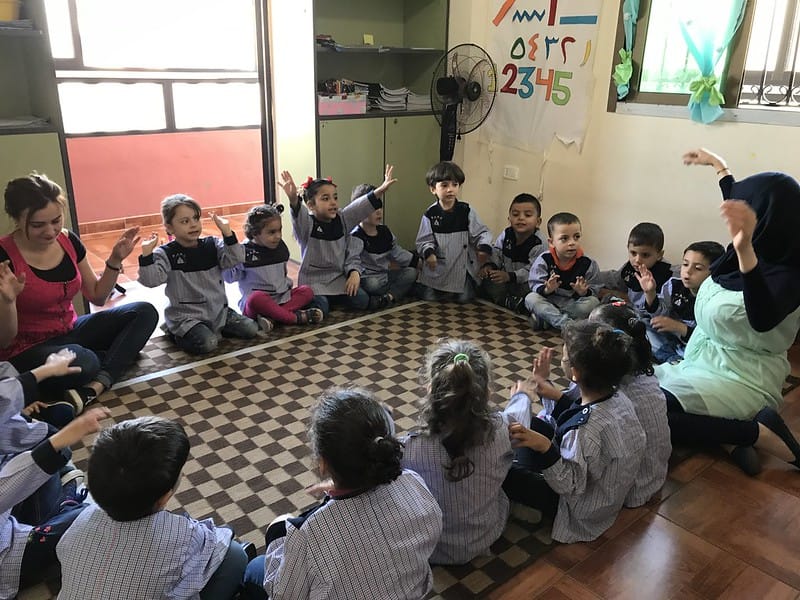Educational program for Syrian children in Lebanon

August 27, 2020
What the project does
The kindergarten provides for 100 students in Wadi Zayne in the south of Lebanon. The school provides the children with an important education while also addressing their psycho-social needs.
The curriculum focuses on education and psychosocial activities for 4 to 6-year-olds. They learn numbers, play team games and do art work amongst other activities. The team games are particularly important for children who have either experienced trauma or live with insecurity because they encourage teamwork, self-discipline, trust and sharing.
On top of this, the teachers for the school are from the refugee community as many had worked in education before. The kindergarten provides them with a livelihood and a rare opportunity to use their professional skills.
The teachers are incredibly resourceful and often use simple materials such as paper cups and plates, objects we tend to take for granted, to make animals, sea creatures and even snowmen!
Long term results
The kindergarten prepares Syrian children for entry into the Lebanese school system which is different from the system in their home country.
The students are able to learn about their new home and the expectations for them at the Lebanese schools so they will be able to comfortably participate in school life.
Funding
The funding covers teachers’ salaries, teaching assistants’ salaries and tablets for the children to study on as their school time is divided by in-person classes and online classes from home.
Beneficiaries
Israa Nawfal refugee from Syria who loves to draw on her books, bags, or anything that belongs to her. When she first attended the kindergarten at the age of 5, Israa didn’t like coming to school. She would cry, she preferred to be alone, and she would not talk to anybody in the class, even the teacher.The teachers worked together with the mother to help Israa see the importance of being clean, and to take care of her stuff. Her mother bought a small board for her to draw on at home, and Israa stopped drawing on walls and school books.
Now Israa knows the letters, numbers, she does the worksheets alone, all her stuff is clean, and she loves to come to the kindergarten.
Background
There are over 1 million Syrian refugees in Lebanon, making up a quarter of the population and putting severe pressure on a troubled state. Amongst this number are nearly 400,000 Syrian children which has placed a large burden on Lebanese state schools. Only an estimated 30% of the Syrian refugee school-aged children are receiving an education. In addition to barriers to access and other challenges, a significant obstacle to integration is language: Syrian schools are taught in Arabic, while Lebanese public schools incorporate both French and English.
The kindergarten is administered by staff from PARD (Popular Aid for Relief and Development) who provide the premises for the school.